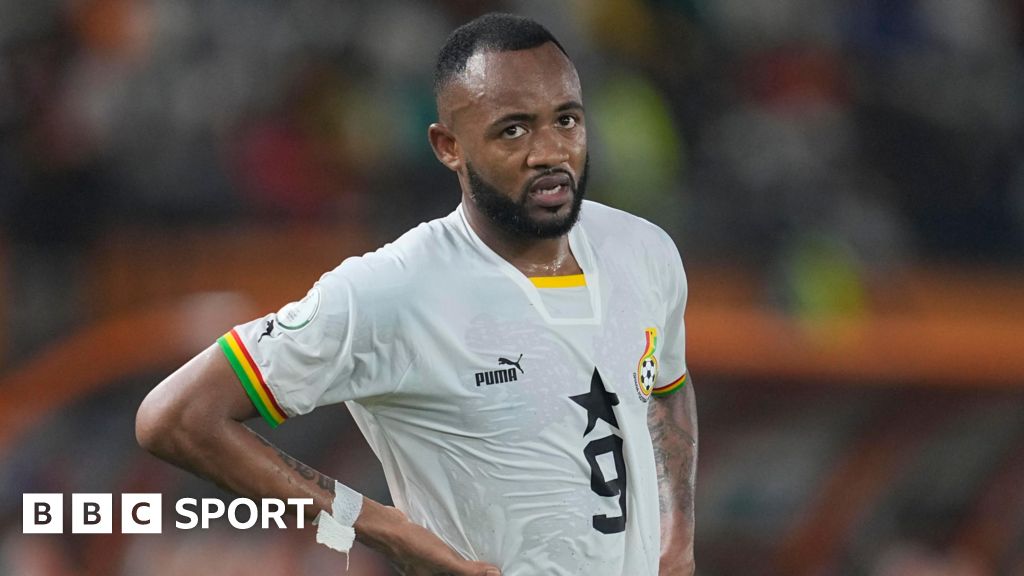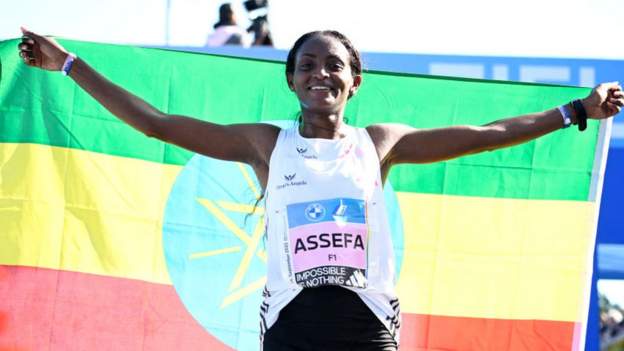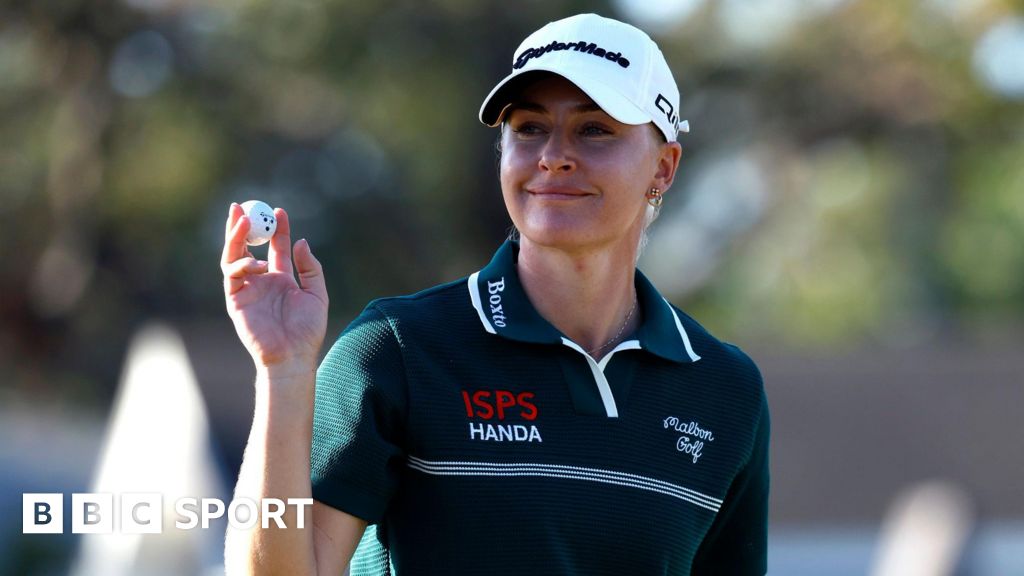Ethiopia’s Tigst Assefa smashed the women’s marathon world record as she won Sunday’s race in Berlin.
Assefa, who also won last year’s race, crossed the line in a time of two hours, 11 minutes and 53 seconds.
The 26-year-old took more than two minutes off the previous record of 2:14.04 – set by Kenya’s Brigid Kosgei in Chicago in 2019.
Double Olympic champion Eliud Kipchoge was the men’s winner for a record fifth time in Berlin with a run of 2:02.42.
The 38-year-old Kenyan set the men’s record of 2:01.09 in Berlin last year, when he moved level with Ethiopian great Haile Gebrselassie on four wins.
Assefa’s winning time is the 13th world record to be set in Berlin, where she won last year in 2:15.37 – which at the time was the third fastest women’s run in history.
“I am very happy,” she said. “I wanted to break the marathon world record, but I couldn’t imagine that it would result in a time under 2:12.”
A former 800m specialist, Assefa only started racing marathons in April last year.
She made her intentions clear on her return to Berlin, setting a lightning-quick early pace before reaching the halfway mark in one hour six minutes 20 seconds.
One of six women to be on world record pace at that stage, Assefa maintained that speed to streak clear and at the 37km mark (23 miles) she was just three seconds per kilometre slower than Kipchoge’s time at the same stage on Sunday.
Despite running the slowest marathon of his career (2:09.23) as he finished a surprise sixth in Boston in April, Kipchoge said after the race in Berlin that he had expected to break the world record he set last year.
During the early stages, he was on course for a sub-two hour run and later on was still on track to break his record, but he drifted off the pace for each of those times. He reached halfway in 1:00.21, slightly slower than the halfway split for his world record – 59:51.
He has run a marathon in under two hours, in Vienna in 2019, but that was not recognised as the official world record because it was not in open competition and he used a team of rotating pacemakers.
Kipchoge has won on five of his six appearances in Berlin and in 16 of his 19 races, including the 2016 and 2020 Olympics.
Sunday’s time was the eighth fastest of all time and Kipchoge, who aims to be the first athlete to win three Olympic marathons next year, has now run five of the top eight times.
“I was expecting to do the same [break the record], but it did not come, that’s how sport is,” he said. “Every race is a learning lesson.
“I’ll put all my experience of my 21 marathons into next year in the Olympics in Paris and try to be the first to win for the third time, but I would also be happy with the podium.”





















